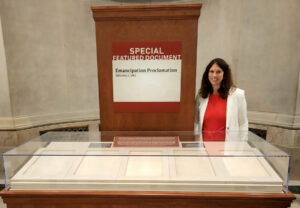Harper’s Weekly: A Journal of Civilization, reprints, Applewood Books, Bedford, Massachusetts, 800-277-5312, $98 per year in printed form, $49.95 via e-mail.
The year was 1857. The Civil War had not yet begun, but the events of the previous few years certainly had hinted toward its arrival. On January 3, Fletcher Harper, a printer and editor from Harper and Brothers of New York City, launched a publication that would not only reflect the era, it would define it. Harper’s Weekly: A Journal of Civilization, featured a combination of news, politics, humor, and literature, all with a decidedly Northern bias. Harper offered his subscribers a front-row seat to the war, a view that readers of daily papers never saw.
What set Harper’s Weekly apart from its competitors was its innovative and liberal use of sketches, created by the likes of Winslow Homer and Thomas Nast. The newspaper, with its vivid depictions of life in battle and at home, revolutionized the printed medium. Harper’s flourished during the war, easily distancing itself from its nearest competitor, the less influential and slightly older Frank Leslie’s Illustrated Newspaper, and remained prosperous through the 1870s. But as technology improved and photographs became common in newspapers, interest in Harper’s Weekly dwindled until it was no longer able to support itself. Finally, in 1916, a newspaper with the ironic name Independent absorbed it.
Reports of Harper’s Weekly’s demise, however, have been greatly exaggerated. Beginning on November 7, 1998, Applewood Books of Bedford, Massachusetts, will issue reprint editions of Harper’s, beginning with the issue dated November 10, 1860. For the next five years, subscribers will receive the corresponding issue from 138 years earlier.
To be sure, Harper’s is a dated work. It speaks in Victorian tones that modern readers can’t help but consider stilted, but that is hardly the point. Don’t subscribe for the writing. Subscribe for the remarkable artwork and the chance to live history as your most literate ancestors did. These reprints are a vital link to a bygone era, and no Civil War devotee should be without them.
Jeff Clouser




